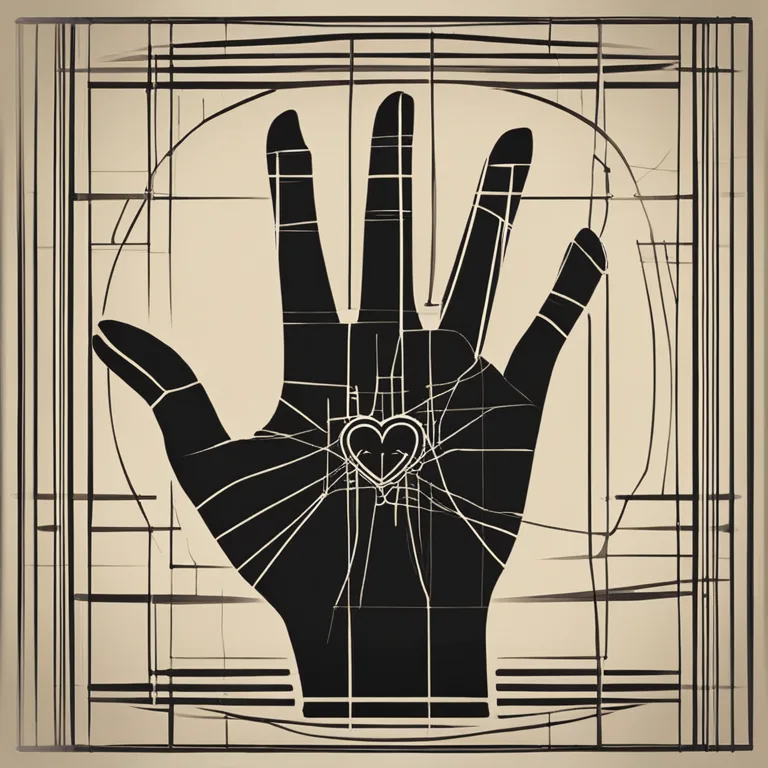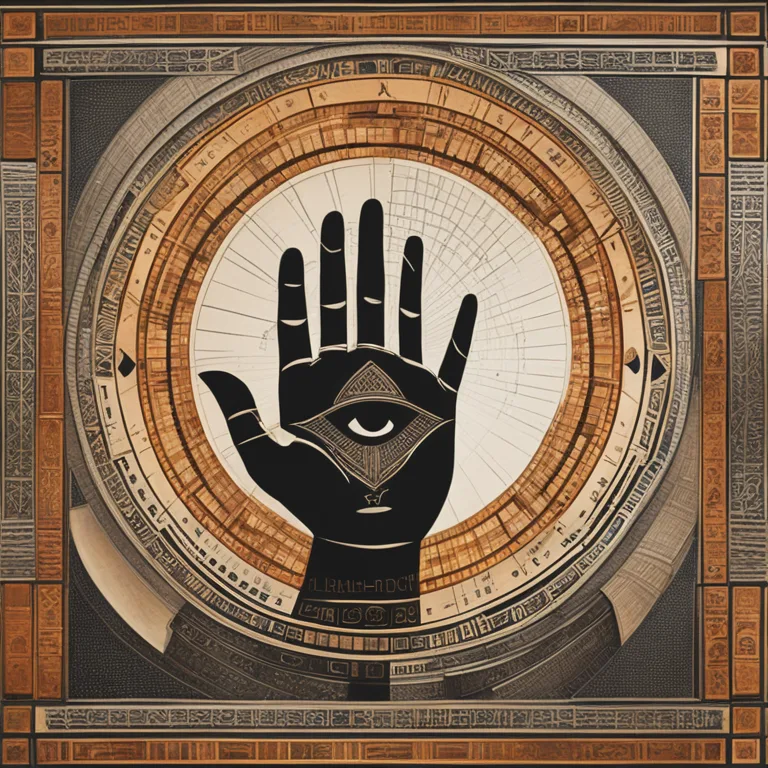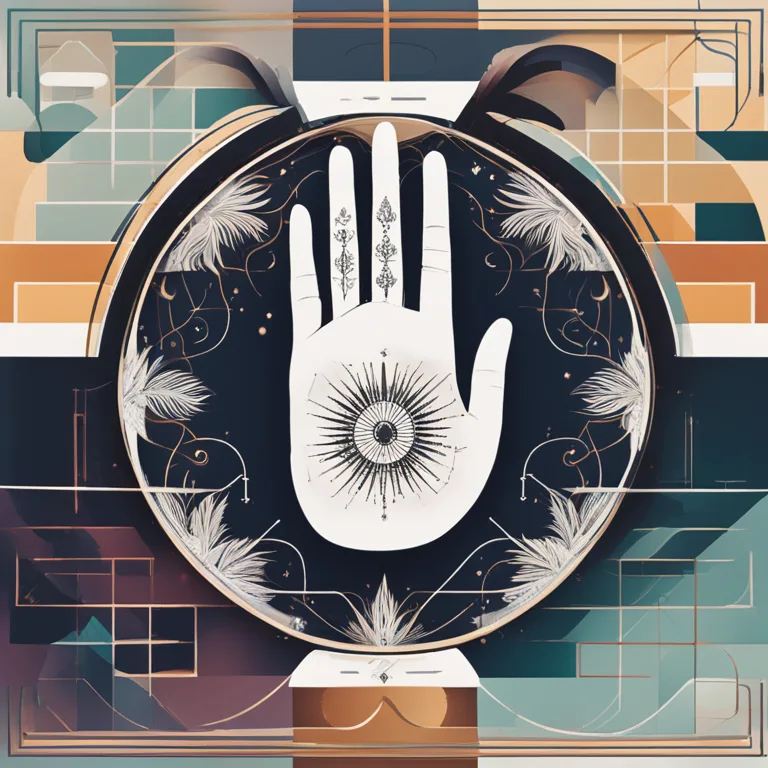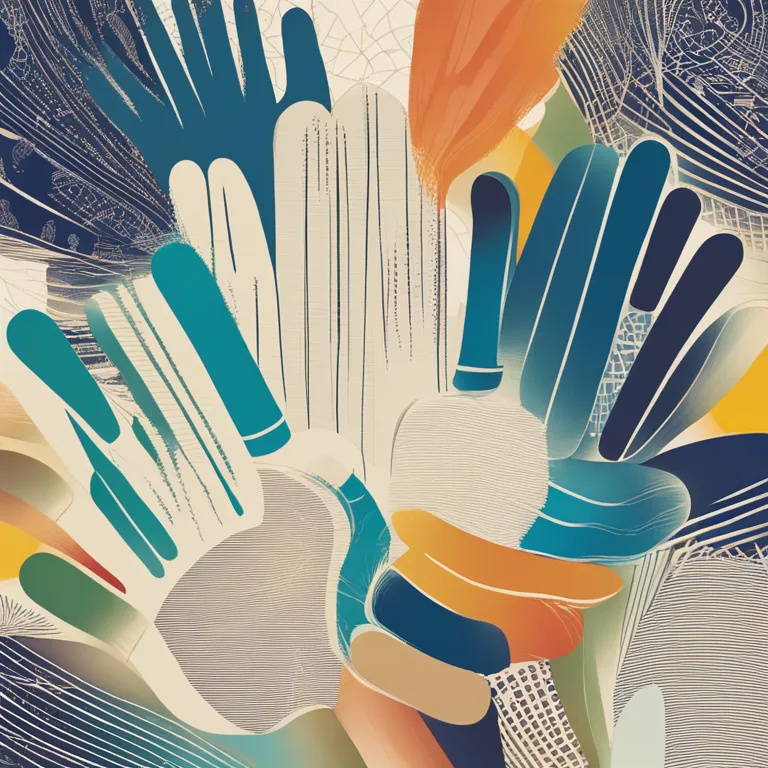
The Intersection of Palmistry and Psychological Insight
Delve into the psychological aspects of palmistry and how this ancient practice may offer a unique lens on the human psyche.
article by Nora Pennington
Palmistry's Psychological Dimensions
For centuries, palmistry, or chiromancy, has been practiced as a form of divination, with roots tracing back to ancient civilizations such as India, China, and Egypt. While mainstream psychology doesn't necessarily incorporate palmistry into its practice, this age-old tradition nevertheless offers a window into the psychological fabric of individuals seeking understanding of their characteristics and life path. This article examines palmistry not as a predictive science but as a tool with psychological implications that might shed light on personality and behavior from a symbolic and metaphorical perspective.

Cultural Relevance and Modern Acceptance
In the cultural panorama of the 21st century, palmistry has experienced a resurgence, integrating itself with popular psychology and self-help movements. People's fascination with palmistry unveils a broader interest in self-discovery and personal growth, aspects highly regarded in modern therapeutic settings. The current narrative blends traditional practices with psychological principles, giving palmistry a fresh platform from which to engage individuals seeking self-knowledge and introspection.

Lines and Psychological Traits
Palmists claim that the lines on a person's hand – notably the heart, head, and life lines – symbolize different aspects of personality and life experience. For instance, a deep heart line may suggest emotional depth, while a broken head line could imply intellectual disruptions or decisive moments in thought processes. In a psychological context, these interpretations transform into discussions about emotional well-being and cognitive patterns, echoing the likes of personality tests that aim to categorize and illuminate individual differences.

Hands as Personal Narratives
Each hand's line network, shape, and markings are as unique as fingerprints, potentially echoing the individuality of personal stories and psychological pathways. In palmistry-aligned psychology, the hands are perceived as the canvas of one's life narrative, containing symbolic signposts to formative experiences, temperament, and coping mechanisms. This symbolic reading opens a dialogue that can empower individuals to reflect on their personal journey with a new perspective.

Scientific Scrutiny and Public Perception
Though palmistry lacks empirical support from the scientific community, its intersection with psychology raises questions about the human tendency to seek patterns and meaning. This behavior is well-noted in psychology – the tendency to attribute significance to coincidences aligns with cognitive biases such as the Barnum effect, where general statements are perceived as highly accurate for individuals. Thus, the fascination with palmistry may say more about psychological mechanisms than the validity of palm reading itself.
Skeptical Inquiry and Therapeutic Application
Psychologists who approach palmistry with skepticism use it as a stepping stone to initiate conversations about clients' beliefs and perceptions. Rather than viewing palmistry as a tool for literal interpretation, it can serve metaphorically, compelling introspection and dialogue. Such an approach echoes techniques used in other therapeutic contexts, where symbolic language and storytelling play pivotal roles in healing and self-understanding.
Conclusion and Future Perspectives
As we move deeper into the 2020s, the melding of esoteric traditions with psychological constructs remains an area ripe for exploration. While the psychological community largely distances itself from palmistry as a science, it cannot ignore the existential questions and reflective journeys such practices inspire in individuals. Whether palmistry will remain a uniquely human curiosity or evolve into an applied psychological tool largely depends on the willingness to engage with these age-old practices through the lens of modern insight and understanding.
Published: 1/3/2024
Modified: 1/3/2024
More predictions
Come back here soon to learn more about yourself and your future


The Palmistry Guide to Your Career Path
Discover how the lines on your palm can offer insights into your professional journey and potential for growth in your career.


The Correct Hand for Palm Reading: A Guide
Learn which hand to read for insightful palmistry interpretations and how the distinction influences personal readings.


A Beginner's Guide to Palmistry
Discover the essentials of palm reading in this comprehensive guide, tailored for beginners keen on understanding the mysteries of palm lines and their meanings.